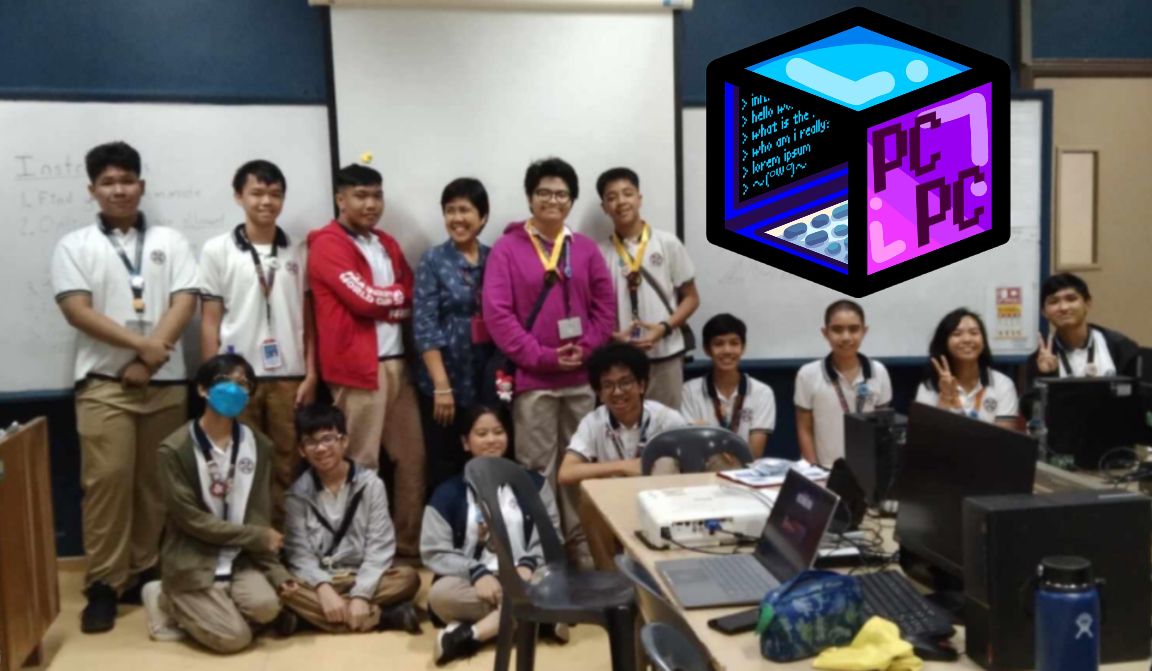
At just 18 years old, a Grade 12 student from the Philippine Science High School - Main Campus (PSHS-MC), is making waves in the country’s competitive programming (CompProg) scene.
As a four-time finalist in the National Olympiad in Informatics, a national qualifier for the Philippine Mathematical Olympiad and the Philippine Physics Olympiad, and a Philippine delegate to the 2024 International Olympiad in Informatics, Gabee De Vera has established himself as one of the top young minds in the field.
Now, he is paying it forward by spearheading the Pisay Competitive Programming Competition (PCPC), a pioneering initiative that he hopes will elevate CompProg in the country.
“2024 marked my second anniversary of doing CompProg,” he said.
“I was inspired by the generosity of people in the NOI.PH community---they lent their time to teach students CompProg. Coaches like Cisco, Kevin, Vernon, Payton, Farrell, and fellow students like Dylan Dalida magnanimously provided free training and advice for budding computer scientists,” he went on.
De Vera said his passion for the sport motivated him to create a new opportunity for high school students to learn about it.
“Thus, I spearheaded the first-ever Pisay Competitive Programming Competition,” he said.
Unlike other individual-based programming contests, De Vera decided to make PCPC a team-based competition, inspired by collegiate-level contests like the International Collegiate Programming Contest (ICPC).
“I wanted to show people the potential of CompProg as a team sport,” he explained.
Challenges in organizing the first PCPC
According to De Vera, starting a large-scale competition from scratch came with its own set of challenges.
“One of the biggest challenges in organizing PCPC was balancing it with my workload in school. Thankfully, I had developed good time management skills from my time in the pandemic, so this was not too big of a challenge for me,” he said.
However, he said that what proved to be more difficult was managing a large-scale project with many moving parts.
“As the overall head, I had to think of problem setting, problem testing, publication materials, announcements, forms (e.g., activity proposals), merch, among others,” he shared.
To overcome this, De Vera said he applied project management principles and relied on a network of friends who helped with publicity materials, social media captions, and artwork.
Expanding beyond PSHS main
After a successful inaugural year, De Vera was determined to expand PCPC beyond PSHS Main Campus.
“This decision was a no-brainer: It was my plan to make PCPC national from the very start,” he said.
“I only did PSHS-Main to begin with as a proof of concept: to show others and myself that PCPC is viable,” he went on.
Driven by a desire to boost national participation in competitive programming, he aims to expand the field, believing it remains underdeveloped in the Philippines compared to other countries.
“I firmly believe CompProg can and should be a more universal sport, especially given the low incidence of high school students joining our National Olympiad in Informatics compared to other neighboring countries,” he said.
For comparison, De Vera noted that Indonesia has around 40 to 50 times as many NOI participants despite having only 2.45 times the population of the Philippines.
What set PCPC apart
He noted that PCPC’s unique approach makes it stand out from other programming competitions.
“For one, PCPC is a team CompProg competition for high school students. PCPC allows participants to discuss and brainstorm with one another,” De Vera said.
Another defining feature, he said, is its “subtask” system, where difficult problems are broken down into smaller, more manageable challenges.
“The subtasks show that the process of developing algorithms is iterative—you start with something simple then build upon it with insights and optimizations until you reach a state where the algorithm can efficiently solve the task,” he explained.
Even seasoned trainers in the NOI community have praised the quality of PCPC problems.
“It’s [PCPC problems] very high quality. Matino ‘yung ideas, malinis ‘yung problem statements (The ideas are well-thought-out, and the problem statements are clear),” Cisco Ortega, one of the trainers of NOI, said.
Growing interest
Matti Campos, a Grade 11 PSHS-MC student and past participant, shared how PCPC helped him learn key programming concepts such as breadth-first search, depth-first search, and disjoint set union.
De Vera noted that participation numbers have also significantly increased.
“Last year, 23 participants joined PCPC. This year, 75 participants joined,” he said.
The level of competition, he said, has risen dramatically.
“We designed this year’s PCPC with the expectation that no one would fully solve all problems. To our surprise, someone solved all the problems within the first day of the competition,” he said.
Despite this growth, De Vera believes that competitive programming still faces major challenges in the Philippines, particularly in awareness and interest.
“Many STEM students are inclined to pursue Engineering and especially Medicine, which are prestigious in the Philippines; however, there seems to be a relative lack of interest in Computer Science,” he said.
For De Vera, PCPC is more than just a competition—it is a movement to shift perceptions and elevate Computer Science to the same level of prestige as other fields.
“I envision a Philippines where Computer Science is on equal footing with Engineering, Medicine, and the other sciences,” he said.
“As PCPC grows, my hope is that more people find substance in the field of Computer Science.”
This year’s PCPC was held on Feb. 7 to 10.
With De Vera’s passion and vision, the future of competitive programming in the Philippines looks promising.